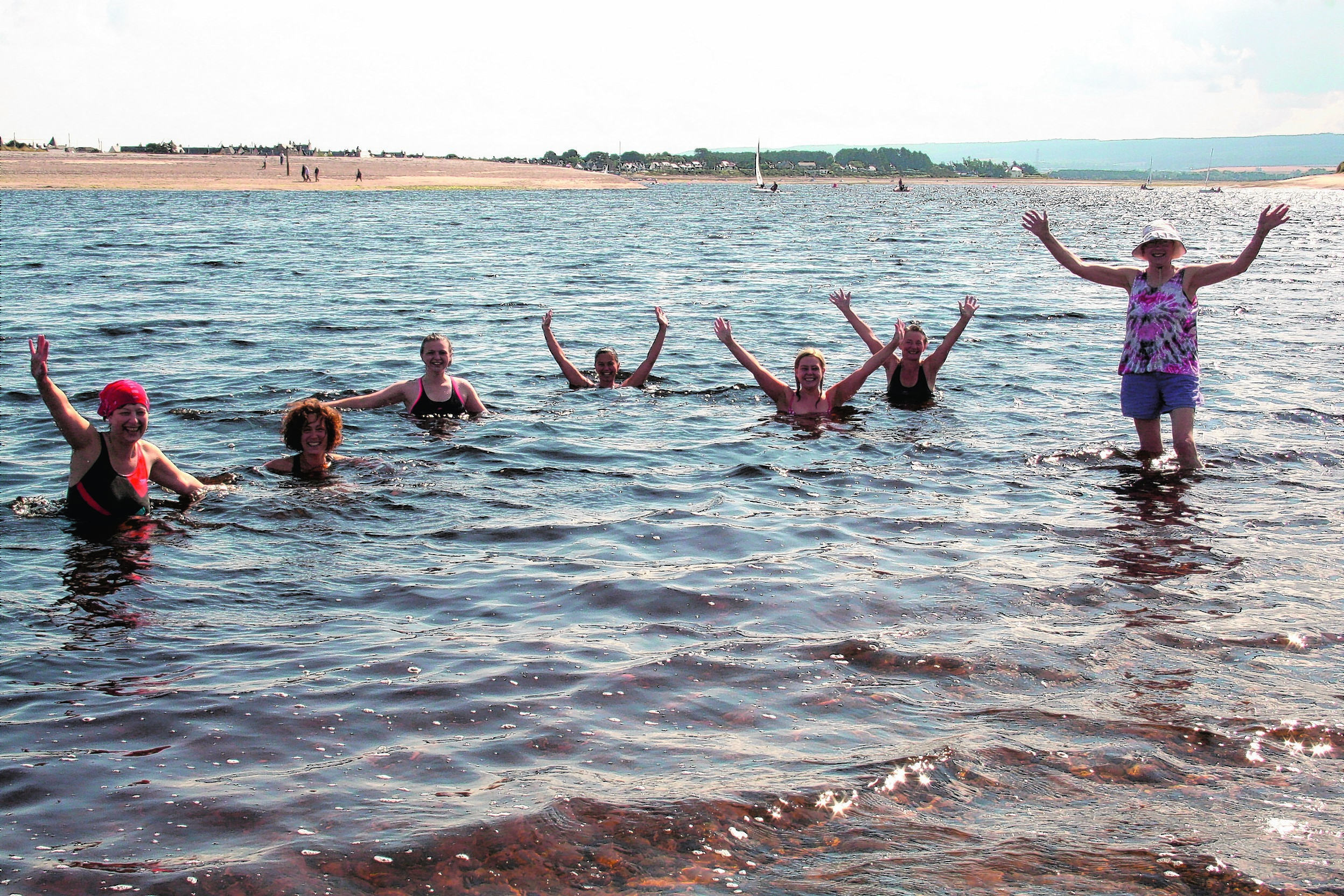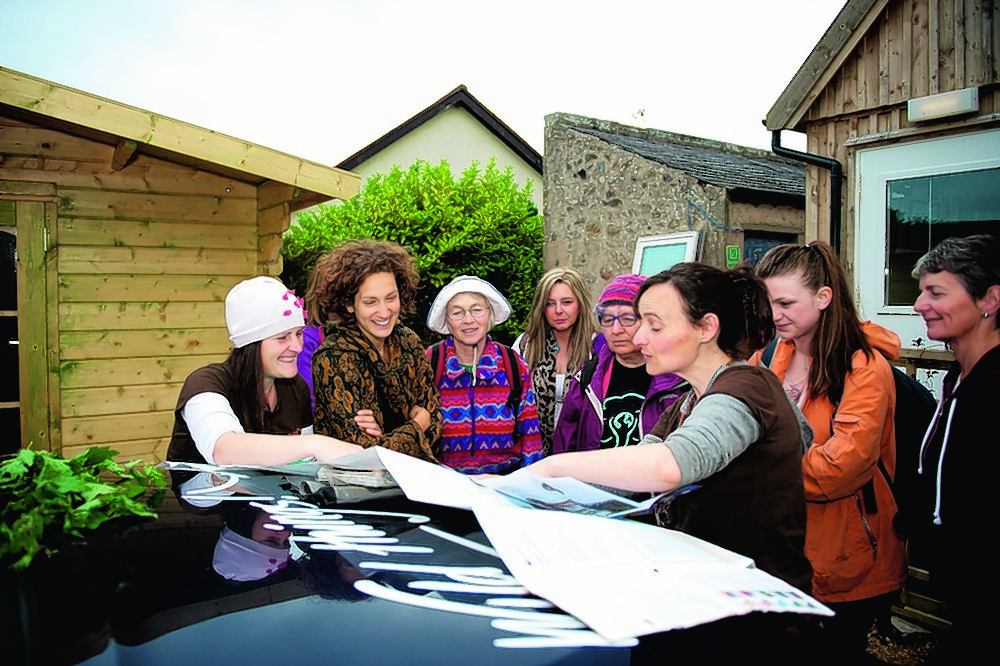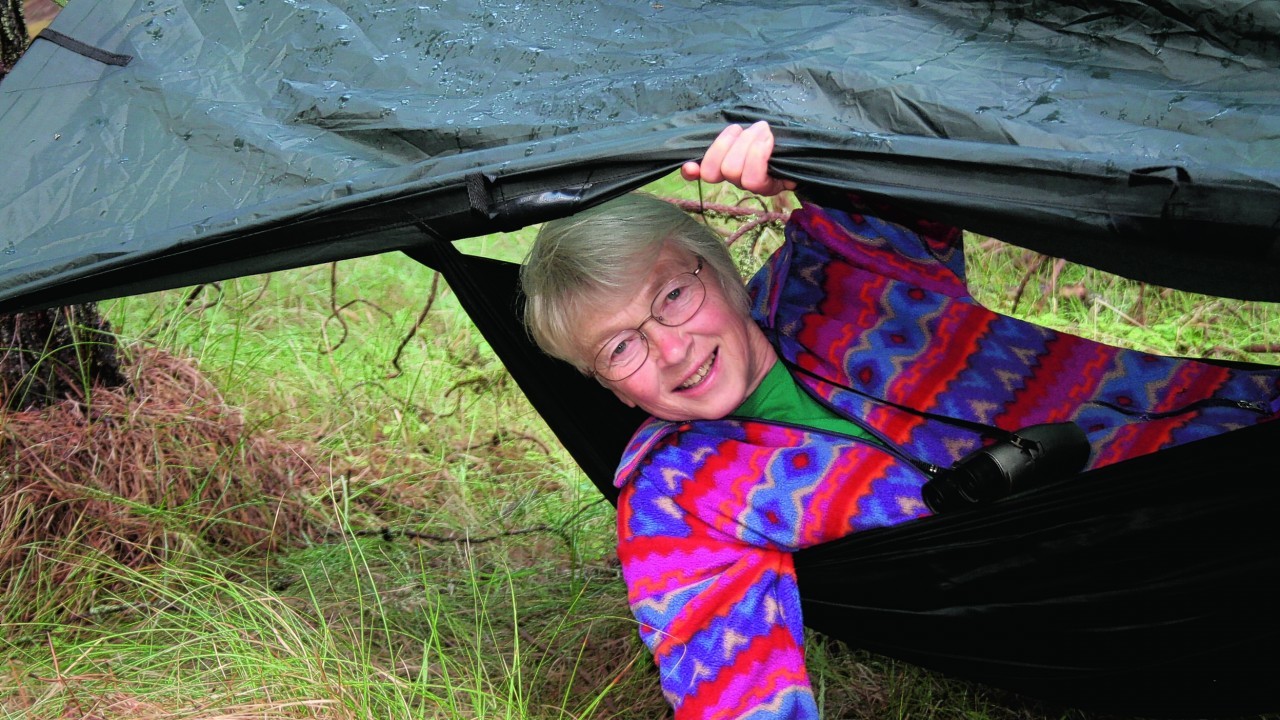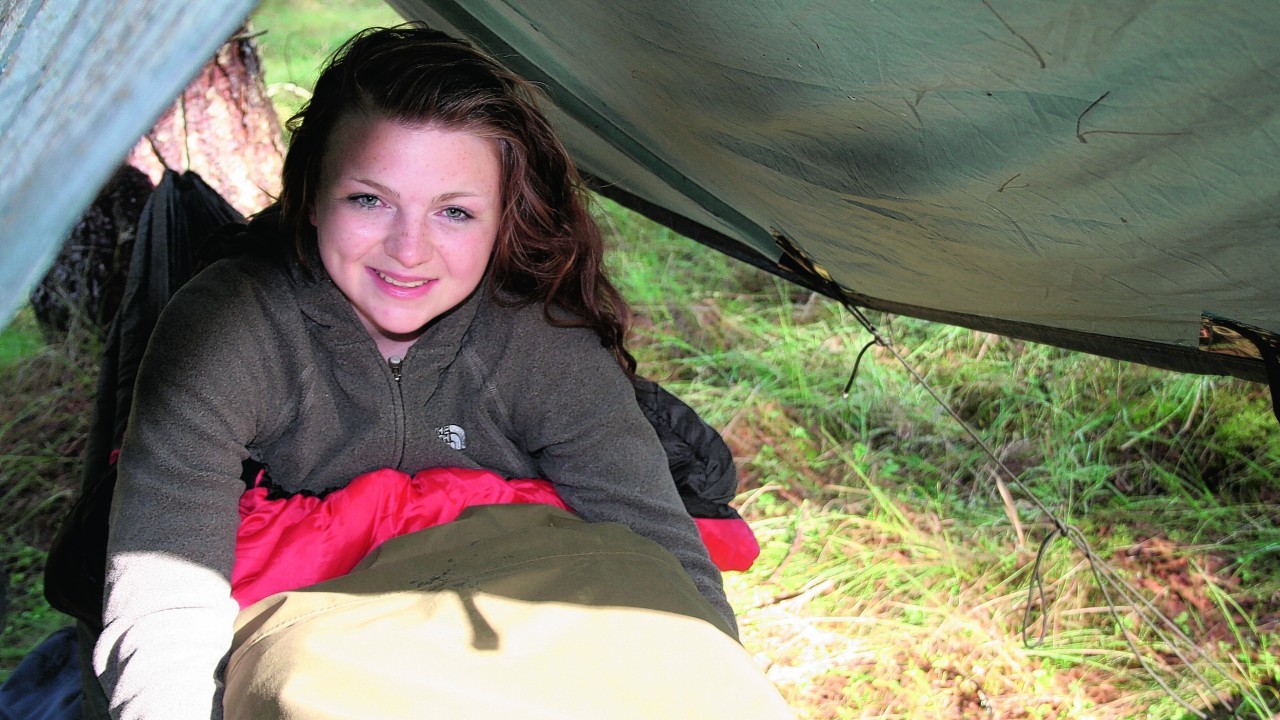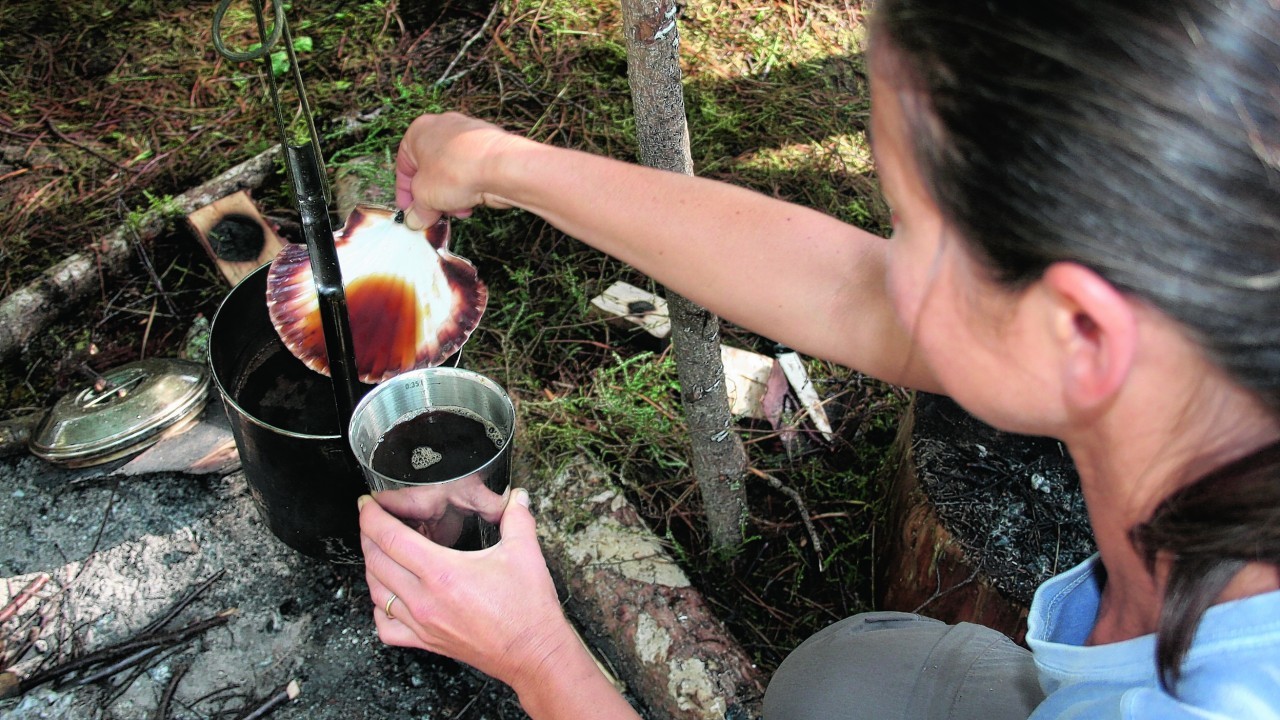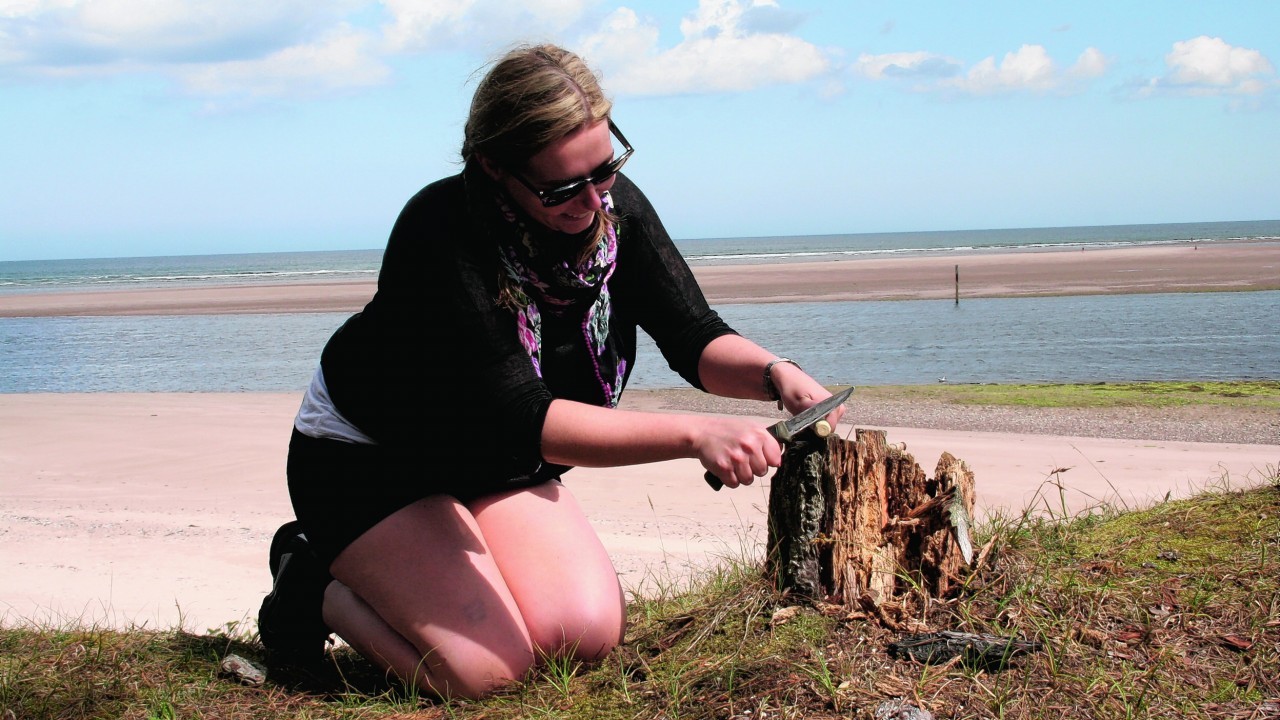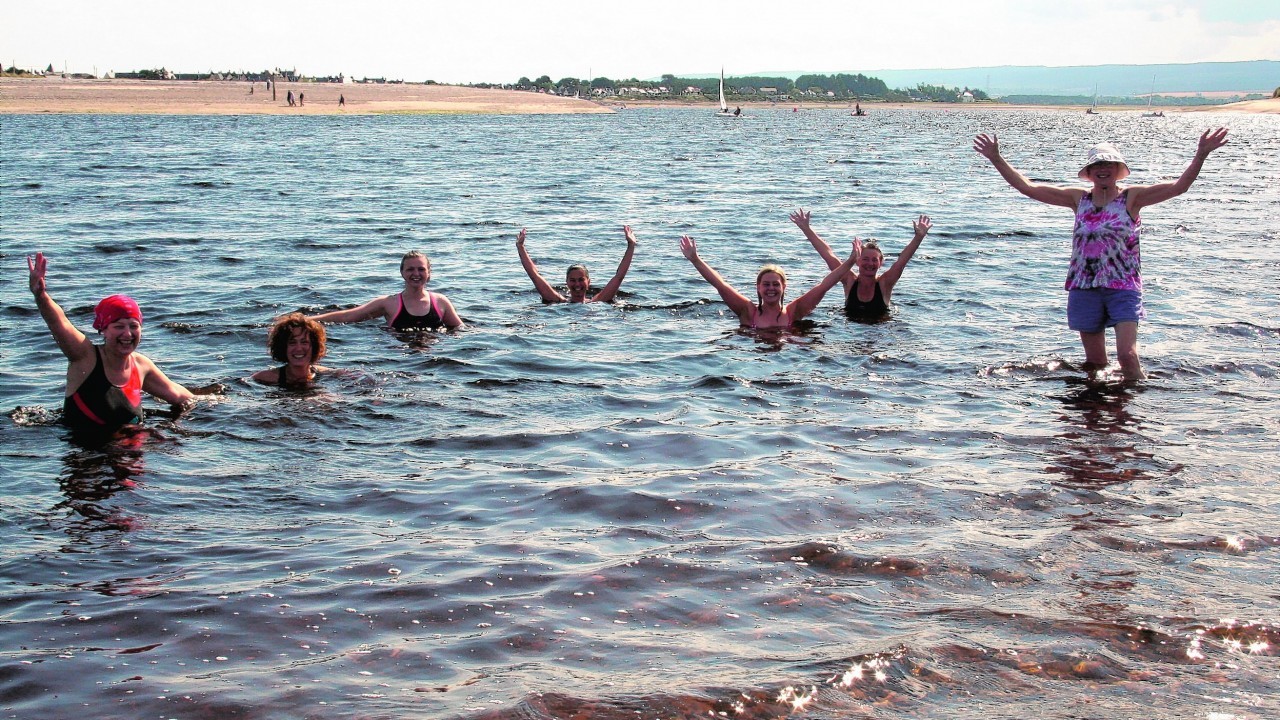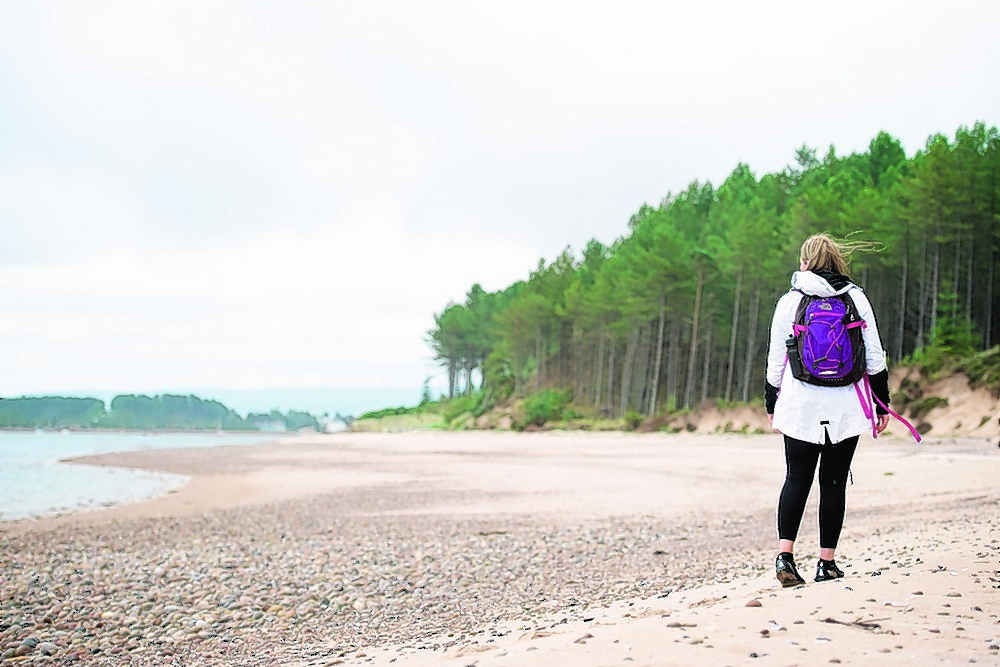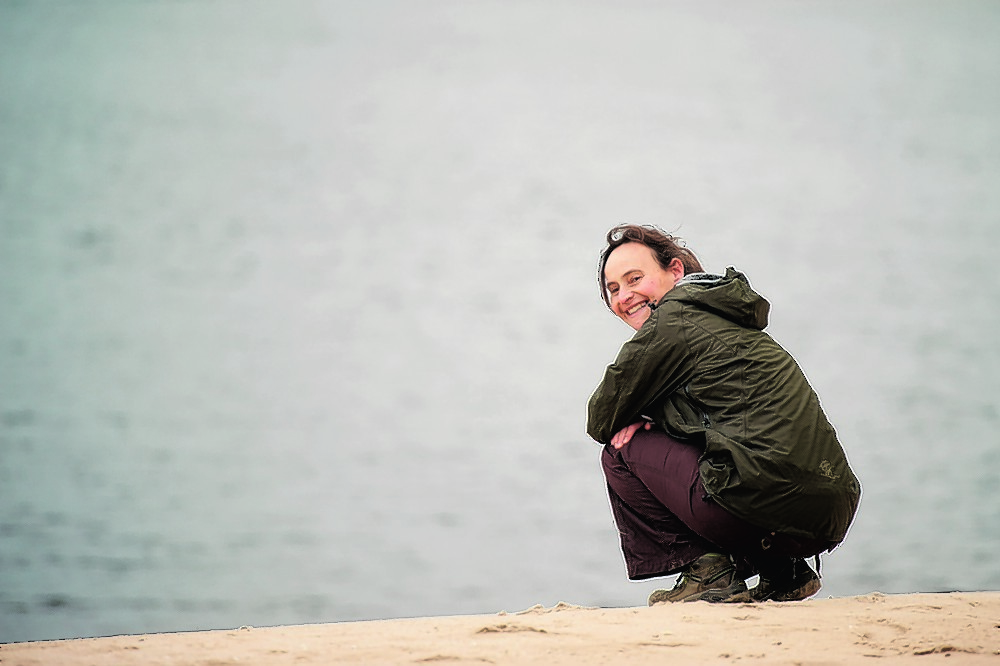Last month, nine women made their way to the village of Findhorn to spend their weekend camping in the wild. Draped over the bonnet of the Wild things! Jeep, they gathered around the map, eager to see the remote location that would be their home for the night.
But this wasn’t any ordinary camping expedition. This was the start of the wild woman weekend; an exclusive coastal escape designed to help women unleash their inner ‘bear gals’.
As a part send-up and part hats-off to the popular TV series, The Island, Wild things! was inspired to create the wild woman weekend to give women the opportunity to push the boundaries of their comfort zones and learn how to camp on an isolated sandy peninsula in the north of Scotland.
For those unfamiliar, The Island is a television series where well-known survival expert, Bear Grylls, invites 13 men to explore the concept of what it means to be a modern man living on an island in the Pacific Ocean. But 8,000 miles away in Moray, we spent our weekend exploring our very own Scottish paradise.
The pioneering group was varied and consisted of women between 21 and 71, all of whom had never wild-camped before. Rucksacks in hand, we set off by boat to our exclusive destination across the waters.
“I’m really looking forward to sleeping in a hammock,” said 71-year-old Fay, a local conservationist. Another participant, who is a legal assistant, mother and granny of two, said: “I’m just looking forward to having some time to decompress.”
Overall, the group consisted of working professionals, three grandmothers and one student.
Much is documented about the benefits and value of spending time outdoors and, as a social enterprise, Wild things! is committed to providing opportunities to experience this to as many people as possible, regardless of financial, social or physical challenges.
The natural world is an environment where stress is reduced, anxiety eased, confidence built, and relationships developed. Spending time outdoors is also known to be an effective platform for understanding, hands on, the need to care for the environment and let out the inner conservationist.
So after arriving on the ‘island’, the first thing our bear gals learned was how to put up shelters, an essential survival skill for the oncoming heavy rain that was forecast. Once the tipis and tents were erected, the group went on to learn about knots so that those wanting to sleep under the stars could tie up their hammocks and bashas.
Later that evening, in the search for wild food, we gathered some delicious chanterelles and ate locally harvested seaweeds. After a banquet of foraged foods, we explored the forest in darkness; an experience designed to test the strength of our night vision and stealthful steps on the carpet of pine needles, mosses and lichens. Owls were called for but none replied, only the occasional giggle and then the hush of awe as the seals were heard calling over the sound of the sea against the shore.
Despite the heavy rain and gusts of wind up to 29mph that soon joined the camp, three of these wild women slept through the night in their hammocks and bashas. Early on Sunday, everyone was rewarded for their efforts by wakening to sunlight streaming through the forest canopy.
The day began with a refreshing swim in the sea followed by a breakfast of bacon and sausages, cooked over the fire, and fresh coffee, served in style out of a scallop shell. To finish up, there was just enough time to teach the group a few bushcraft skills; carving butter knives and wooden mushrooms, put up pot hangers over the fire, making wooden bowls and learning how to make cord out of nettle.
Before long, the day was stolen from us and the boat arrived to take us back to civilisation.
Although only two days, the sand between our toes and sea salt in our hair, light in everyone’s eyes and exhilaration on our faces will stay far longer than the 48 hours. As we stepped back into the boat I thought of the quote by the author Sylvia Plath:
“I felt my lungs inflate with the onrush of scenery — air, mountains, trees, people. I thought, this is what it is to be happy.”
Jennie Martin is an ethnobotanist and executive director for Wild things! She has been leading programmes in the outdoors for over 20 years for a variety of clients, from primary school children to military men and women, school teachers and rangers.
- For more information about Wild things! or any of our other courses, visit the website on www.wild-things.org.uk or call 01309 690450.
